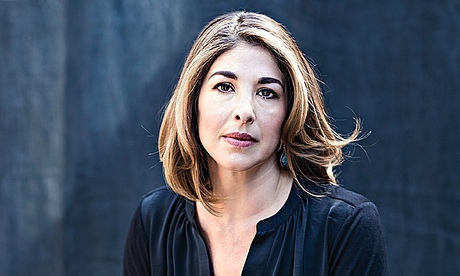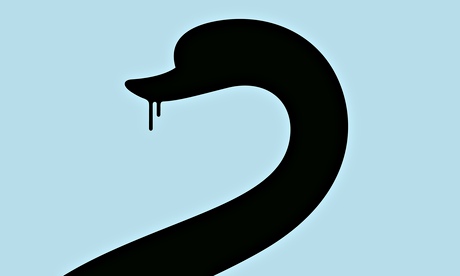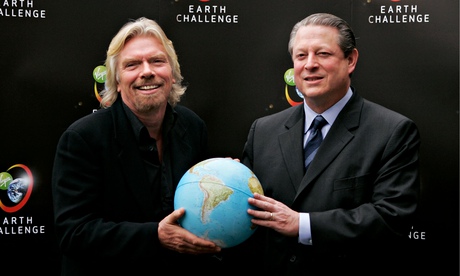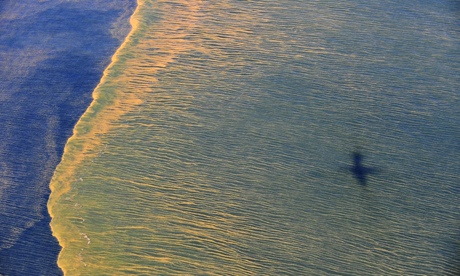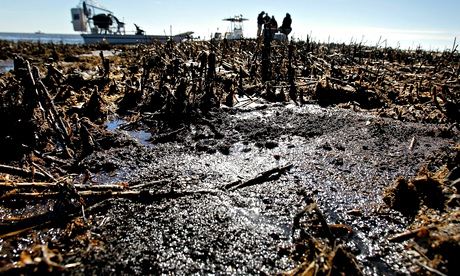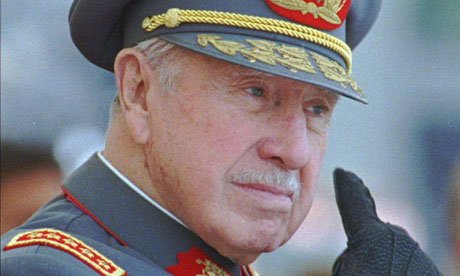Everything feels new, unbelievable, overwhelming. At the same time, it feels as if we’ve walked into an old recurring dream. In a way, we have. We’ve seen it before, on TV and in blockbusters. We knew roughly what it would be like, and somehow this makes the encounter not less strange, but more so.
Every day brings news of developments that, as recently as February, would have felt impossible – the work of years, not mere days. We refresh the news not because of a civic sense that following the news is important, but because so much may have happened since the last refresh. These developments are coming so fast that it’s hard to remember just how radical they are.
Cast your mind back a few weeks and imagine someone telling you the following: within a month, schools will be closed. Almost all public gatherings will be cancelled. Hundreds of millions of people around the world will be out of work. Governments will be throwing together some of the largest economic stimulus packages in history. In certain places, landlords will not be collecting rent, or banks collecting mortgage payments, and the homeless will be allowed to stay in hotels free of charge. Experiments will be underway in the direct government provision of basic income. Large swathes of the world will be collaborating – with various degrees of coercion and nudging – on a shared project of keeping at least two metres between each other whenever possible. Would you have believed what you were hearing?
It’s not just the size and speed of what is happening that’s dizzying. It’s the fact that we have grown accustomed to hearing that democracies are incapable of making big moves like this quickly, or at all. But here we are. Any glance at history reveals that crises and disasters have continually set the stage for change, often for the better. The global flu epidemic of 1918 helped create national health services in many European countries. The twinned crises of the Great Depression and the second world war set the stage for the modern welfare state.
But crises can also send societies down darker paths. After the terrorist attacks of September 11, government surveillance of citizens exploded, while George W Bush launched new wars that stretched into indefinite occupations. (As I write this, the US military’s current attempt at reducing its troop presence in Afghanistan, 19 years after the invasion, is being slowed by coronavirus-related complications.) Another recent crisis, the 2008 financial crash, was resolved in a way that meant banks and financial institutions were restored to pre-crash normality, at great public cost, while government spending on public services across the world was slashed.
Because crises shape history, there are hundreds of thinkers who have devoted their lives to studying how they unfold. This work – what we might call the field of “crisis studies” – charts how, whenever crisis visits a given community, the fundamental reality of that community is laid bare. Who has more and who has less. Where the power lies. What people treasure and what they fear. In such moments, whatever is broken in society gets revealed for just how broken it is, often in the form of haunting little images or stories. In recent weeks, the news has furnished us with countless examples. Airlines are flying large numbers of empty or near-empty flights for the sole purpose of protecting their slots on prime sky routes. There have been reports of French police fining homeless people for being outside during the lockdown. Prisoners in New York state are getting paid less than a dollar hour to bottle hand sanitiser that they themselves are not allowed to use (because it contains alcohol), in a prison where they are not given free soap, but must buy it in an on-site shop.
But disasters and emergencies do not just throw light on the world as it is. They also rip open the fabric of normality. Through the hole that opens up, we glimpse possibilities of other worlds. Some thinkers who study disasters focus more on all that might go wrong. Others are more optimistic, framing crises not just in terms of what is lost but also what might be gained. Every disaster is different, of course, and it’s never just one or the other: loss and gain always coexist. Only in hindsight will the contours of the new world we’re entering become clear.
The pessimistic view is that a crisis makes bad things worse. People who study disasters – and especially pandemics – know all too well their tendency to inflame xenophobia and racial scapegoating. When the Black Death came to Europe in the 14th century, cities and towns shut themselves to outsiders – and assaulted, banished and killed “undesirable” community members, most often Jews. In 1858, a mob in New York City broke into a quarantine hospital for immigrants on Staten Island, demanded that everyone leave and then burned the hospital down, fearful that it was putting people outside at risk of yellow fever. Wikipedia now has a page collating examples from more than 35 countries of “xenophobia and racism related to the 2019-20 coronavirus pandemic”: they range from taunts to outright assault.
“In a totally rational world, you might assume that an international pandemic would lead to greater internationalism,” says the historian Mike Davis, a renowned American chronicler of the disasters incubated by globalisation. For Davis, who wrote a book about the threat of avian flu in 2005, pandemics are a perfect example of the kind of crises to which global capitalism (with its constant movement of people and goods) is particularly vulnerable, but that the capitalist mindset (with its inability to think in terms beyond profit) cannot address. “In a rational world, we would be ramping up production of basic essential supplies – test kits, masks, respirators – not only for our own use, but for poorer countries, too. Because it’s all one battle. But it’s not necessarily a rational world. So there could be a lot of demonisation and calls for isolation. Which will mean more deaths and more suffering worldwide.”
In the US, President Trump has tried hard to brand the new coronavirus as inherently “Chinese”, and to use the pandemic as a pretext for tightening borders and accepting fewer asylum seekers. Republican officials, thinktanks and media outlets have claimed or implied that Covid-19 is a man-made Chinese bioweapon. Some Chinese officials, in turn, have pushed the conspiracy theory that the outbreak came to China by way of American soldiers. In Europe, the Hungarian prime minister, Viktor Orbán, recently announced: “We are fighting a two-front war: one front is called migration, and the other one belongs to the coronavirus. There is a logical connection between the two, as both spread with movement.”
When you’re fighting a war, you want to know as much about the enemy as possible. But it’s easy, in the rush of crisis, to put in place surveillance tools without thinking about the long-term harm they might do. The scholar Shoshana Zuboff, the author of The Age of Surveillance Capitalism, reminded me that, prior to 9/11, the US government had been in the process of developing serious regulations designed to give web users real choice about how their personal information was and wasn’t used. “In the course of a few days,” Zuboff says, “the concern shifted from ‘How do we regulate these companies that are violating privacy norms and rights’ to ‘How do we nurture and protect these companies so they can collect data for us?’”
For governments looking to monitor their citizens even more closely, and companies looking to get rich by doing the same, it would be hard to imagine a more perfect crisis than a global pandemic. In China today, drones search for people without facemasks; when they are found, the drones’ built-in speakers broadcast scoldings from police. Germany, Austria, Italy and Belgium are all using data – anonymised, for now – from major telecommunications companies to track people’s movement. In Israel, the national security agency is now allowed to access infected individual’s phone records. South Korea sends texts to the public identifying potentially infected individuals and sharing information about where they’ve been.
Not all surveillance is inherently malign, and new tech tools very well might end up playing a role in fighting the virus, but Zuboff worries that these emergency measures will become permanent, so enmeshed in daily life that we forget their original purpose. Lockdowns have made many of us, sitting at home glued to our computers and phones, more dependent than ever on big tech companies. Many of these same companies are actively pitching themselves to government as a vital part of the solution. It is worth asking what they stand to gain. “People have a hard time remembering privacy rights when they’re trying to deal with something like a pandemic,” says Vasuki Shastry, a Chatham House fellow who studies the interplay of technology and democracy. “Once a system gets scaled up, it can be very difficult to scale it back down. And then maybe it takes on other uses.”
The prime ministers of both Israel and Hungary have effectively been given the power to rule by decree, without interference from courts or legislature. The UK’s recently rolled-out coronavirus bill gives police and immigration officers the authority – in place for the next two years – to arrest and detain people suspected of carrying the virus, so that they can be tested. The US Department of Justice has, since the outbreak began, filed a request with Congress for a new rule that would allow judges to suspend courtroom proceedings in emergencies, creating the possibility of people being jailed without ever being able to formally object. “Those of us who follow the police know how this goes,” said Kevin Blowe of Netpol, a UK group focused on protest rights. “These powers get put in place, and it sounds reasonable enough at the time – and then very quickly they’re applied for other purposes that have nothing to do with democracy and nothing to do with public safety.”
In a 2008 report on the legal aspects of pandemic response, prompted by the increase in pandemic flu outbreaks, a team of historians and medical ethicists assembled by the American Civil Liberties Union bemoaned a common tendency – resurgent, in their view, since 9/11 – for government to address public health problems using mindsets more appropriate to tracking down criminals. This suspicious mindset, they argued, ended up most affecting racial minorities and the poor. Tactics like these can make fighting the disease harder, by driving a hard wedge of distrust between government and citizens. As the report put it: “People, rather than the disease, become the enemy.”
There’s another school of thought that looks at crisis and sees glimmers of possibility. For thinkers in this camp, the example of the 2008 financial crash looms large. But where, from their view, 2008 led to defeat – with the broad public giving up a great deal while a small few profited – Covid-19 might open the door to political progress.
“I think we’re just so different to how we were before we saw the aftermath of the 2008 crash,” said the American writer Rebecca Solnit, one of today’s most eloquent investigators of crises and their implications. “Ideas that used to be seen as leftwing seem more reasonable to more people. There’s room for change that there wasn’t beforehand. It’s an opening.”
The argument, in its simplest form, is this: Covid-19 has revealed the political status quo to be broken. Long before anyone had heard of the new coronavirus, people died of diseases we knew how to prevent and treat. People lived precarious lives in societies awash with wealth. Experts told us about catastrophic threats on the horizon, including pandemics, and we did next to nothing to prepare for them. At the same time, the drastic measures governments have taken in recent weeks testify to just how much power the state does have – the extent of what government can accomplish (and quickly!) when it realises it must act boldly or risk being seen as fundamentally illegitimate. As Pankaj Mishra recently wrote: “It has taken a disaster for the state to assume its original responsibility to protect citizens.”
For years, in mainstream politics the conventional line – on everything from healthcare to basic living expenses such as housing – has been that even if the world has its problems, expansive government intervention is not a feasible solution. Instead, we have been told that what works best are “marketplace” solutions, which give large roles to corporations motivated not by outdated notions like “the public good” but by a desire to make a profit. But then the virus started spreading, governments spent trillions in days – even going so far as to write cheques directly to citizens – and suddenly the question of what was feasible felt different.
From this perspective, the task today is not to fight the virus in order to return to business as usual, because business as usual was already a disaster. The goal, instead, is to fight the virus – and in doing so transform business as usual into something more humane and secure.
In her 2009 book, A Paradise Built in Hell, Solnit used case studies of disasters – including the 1985 Mexico City earthquake, the 2001 terror attacks and Hurricane Katrina – to argue that emergencies aren’t just moments when bad things get worse, or when people inevitably become more scared, suspicious and self-centred. Instead she foregrounded the ways in which disasters opened up human reserves of improvisation, solidarity and resolve, pockets of purpose and joy, even in the midst of loss and pain. The book was not a call to celebrate disaster – but to pay attention to the possibilities it might contain, and how it might shake us loose from old ways. In Solnit’s telling, “official” disaster responses had a tendency to muck things up by treating people as part of the problem to be managed, not an invaluable part of the solution.
Sometimes this mismanagement is a result of mere incompetence – other times it is more sinister. In her 2007 book, The Shock Doctrine, the Canadian writer Naomi Klein laid out a dark account of crisis politics. In Klein’s view, there is always Disaster 1 – the earthquake, the storm, the military conflict, the economic slump – and Disaster 2 – the bad things that people with power subsequently get up to, such as ramming through extreme economic reforms or gobbling up post-crisis opportunities for self-enrichment, while the rest of us are too dazed to notice. (In fact, Klein argued, these people sometimes engineer Disaster 1 to get the process started.)
Unlike Solnit’s book, The Shock Doctrine doesn’t have much to say about the resilience of everyday people when everything goes horribly wrong. (Indeed, Solnit directly criticised Klein for this omission.) But the two books fit together like puzzle pieces. Both address crisis not in terms of what inevitably – or “naturally” – happens as they unfold, but in terms of choices that people make along the way. And both were well-timed to contribute to the political conversations taking shape in the rubble of the financial crash.
In 2008, days after Barack Obama’s election, his chief of staff, Rahm Emanuel, famously said: “You never want a serious crisis to go to waste.” Today’s leftists, for whom Obama mostly represents disappointment, are prone to agree. They feel that, in the wake of recent crises, they lost, and now is the time to make amends. If, facing a pandemic, we can change this much in a few weeks, then how much might we change in a year?
For anyone making this argument, the contrast between 2008 and the present crisis is striking. Compared to the opaque financial crisis, with its credit default swaps and collateralised debt obligations, the coronavirus is relatively easy to understand. It is a dozen crises tangled into one, and they’re all unfolding immediately, in ways that cannot be missed. Politicians are getting infected. Wealthy celebrities are getting infected. Your friends and relatives are getting infected. We may not quite all be “in it together” – as always, the poor are hit worse – but there is more truth to the idea than there ever was in the wake of 2008.
In this, the optimists believe, there is hope that we might begin to see the world differently. Maybe we can view our problems as shared, and society as more than just a mass of individuals competing against each other for wealth and standing. Maybe, in short, we can understand that the logic of the market should not dominate as many spheres of human existence as we currently allow it to.
“More people are in a position to connect the dots,” Klein said. “It has to do with people’s experiences; for people of a certain age, their only experience of capitalism has been one of crisis. And they want things to be different.”
That screaming buzzsaw noise in the background of this conversation is the sound of the climate crisis. If 2008 is the disaster that Klein and like-minded thinkers want to avoid repeating, climate change is the much bigger disaster they see coming – that they know is already here – and that they want to fight off. Indeed, in the years since publishing The Shock Doctrine, Klein has made climate change her central focus, framing it as the paradigmatic emergency that must be wrenched from the clutches of fossil-fuel profiteers and their enablers in government.
Although Covid-19 is likely the biggest global crisis since the second world war, it is still dwarfed in the long term by climate change. Yet the two problems have suggestive similarities. Both will require unusual levels of global cooperation. Both demand changes in behaviour today in the name of reducing suffering tomorrow. Both problems were long predicted with great certainty by scientists, and have been neglected by governments unable to see beyond the next fiscal quarter’s growth statistics. Accordingly, both will require governments to take drastic action and banish the logic of the marketplace from certain realms of human activity, while simultaneously embracing public investment. In other words, to think of this new level of state intervention as a temporary requirement is to ensure that we continue barrelling down the path to climate disaster.
“We’ve been trying for years to get people out of normal mode and into emergency mode,” said Margaret Klein Salamon, a former psychologist who now heads the advocacy group The Climate Mobilization. “What is possible politically is fundamentally different when lots of people get into emergency mode – when they fundamentally accept that there’s danger, and that if we want to be safe we need to do everything we can. And it’s been interesting to see that theory validated by the response to the coronavirus. Now the challenge is to keep emergency mode activated about climate, where the dangers are orders of magnitude greater. We can’t think we’re going to go ‘back to normal’, because things weren’t normal.”
The analogy between the two crises only goes so far. There is no getting around the fact that the impacts of climate change are more gradual than those of Covid-19. Most people do not feel they or their loved ones could die from the climate crisis this month, and so emergency mode is harder to activate and sustain. As Salamon pointed out to me, if we truly accepted we were in a climate emergency, then every day the news would lead with updates about which countries were reducing their emissions the fastest, and people would be clamouring to make sure their leaders were adopting the policies that worked.

Illustration: Nathalie Lees/The Guardian
But it is not unimaginable that the experience of Covid-19 could help us understand climate change differently. As the virus has reduced industrial activity and road traffic, air pollution has plummeted. In early March, the Stanford University scientist Marshall Burke used pollution data from four Chinese cities to measure changes in the level of PM2.5, a particularly harmful pollutant that attacks the heart and lungs. He estimated that, in China alone, emission reductions since the start of the pandemic had in effect saved the lives of at least 1,400 children under five and 51,700 adults over 70. Meanwhile, people around the world have been sharing their own anecdotal findings online – stories of sweet-smelling breezes, expanded bike lanes and birdsong returning to neighbourhoods – in a way that almost resembles a digitally distributed Rebecca Solnit project: people catching glimpses, in the midst of a disaster, of a future they know they want and need.
Alongside these hopeful signs, a far less heartening story is unfolding, which fits Klein’s “shock doctrine” framework. Disaster 1: Covid-19. Disaster 2: the dismantling of even the meagre existing rules designed to protect the environment. On 26 March, following lobbying from the energy industry, the US Environmental Protection Agency announced that, in recognition of the pandemic’s effects on the workforce, it will not punish violations of pollution regulations so long as companies can link those violations to the pandemic. China’s environmental ministry has started waiving inspections that assess the environmental impact of industrial facilities. And advocacy groups funded by the plastics industry have launched a public relations blitz on behalf of single-use plastic bags, spreading the unproven claim that the virus is less likely to stick plastic than to the cloth fabric of reusable bags. Looking back at the crisis of 2008, we can see that emissions dropped then, too – only to rebound drastically in 2010 and 2011.
Salamon believes that one lesson of the coronavirus crisis is the power of shared emotion, which has helped make possible radical action to slow the pandemic. “I’m not talking about people giving each other medical expertise. I’m talking about people calling each other up and saying: ‘How are you doing? Are you scared? I’m scared. I want you to be OK, I want us to be OK.’ And that’s what we want for climate, too. We need to learn to be scared together, to agree on what we’re terrified about.” Only then, she said, would governments be forced to act. “It’s good that we’re entering emergency mode about the pandemic,” she said. “But unless we also do it for climate … ” She didn’t finish the sentence.
What kind of actions would it take for the optimists’ vision to materialise? The historian Philip Mirowski, author of Never Let a Serious Crisis Go to Waste: How Neoliberalism Survived the Financial Meltdown, warns against complacency. “The left thought it was so obvious to everyone that the crisis revealed the utter bankruptcy of a certain way of looking at the economy,” he told me. “And it wasn’t obvious to everyone, and the left lost.” How do we prevent the world from going back to a version of the way it was before Covid-19, with the virus vanquished but all of the old ongoing disasters still unfolding?
“The political outcome of the epidemic,” said Mike Davis, “will, like all political outcomes, be decided by struggle, by battles over interpretation, by pointing out what causes problems and what solves them. And we need to get that analysis out in the world any way we can.” One major obstacle, of course, is social distancing, which certainly hinders many time-tested methods of waging such struggles, such as political canvassing and street protest. “The biggest risk for all of us,” said Klein, “is going to be frittering away this time sitting at home on our social media feeds, living the extremely limited forms of politics that get enabled there.”
Davis hoped protesters would find their way into the streets sooner rather than later, and speculated that a street action with all the sign-holding participants spaced 10 or 15 feet apart would make a dramatic media image. He lives in Pāpa‘aloa, a small community in Hawaii, and as our conversation wrapped up, he mentioned that he was planning to spend part of the afternoon doing his part by standing by himself on a street corner, holding a sign. He hadn’t decided what to write on it yet, but was thinking about “SUPPORT THE NURSES’ UNION” or “DEMAND PAID SICK LEAVE”.
Solnit told me she was taking heart from all the new ways people were finding to connect and help each other around the world, ranging from the neighbourhood delivery networks that had sprung up to bring groceries to people who couldn’t get out, to more symbolic interventions, such as kids playing music on an older neighbour’s porch. The Italian political scientist Alessandro Delfanti said he was finding hope from a post-outbreak wave of strikes roiling Amazon warehouses in the US and Europe, and also the steps that workers across different sectors of the Italian economy were taking to help each other secure equipment they needed to stay safe.
What happens next might depend on the optimists’ ability to transport such moments of solidarity into the broader political sphere, arguing that it makes no sense to address Covid-19 without at least trying to fix everything else, too, creating a world where our shared resources do more for more people. “We don’t even have a language for this emotion, in which the wonderful comes wrapped in the terrible, joy in sorrow, courage in fear. We cannot welcome disaster, but we can value the responses, both practical and psychological,” Solnit wrote in A Paradise Built in Hell.
The world feels awfully strange right now, but not because – or not just because – it is changing so fast and any one of us could fall ill at any time, or could already be carrying the virus and not know it. It feels strange because the past few weeks have exposed the fact that the biggest things can always change, at any minute. This simple truth, both destabilising and liberating, is easy to forget. We’re not watching a movie: we’re writing one, together, until the end.
But it is not unimaginable that the experience of Covid-19 could help us understand climate change differently. As the virus has reduced industrial activity and road traffic, air pollution has plummeted. In early March, the Stanford University scientist Marshall Burke used pollution data from four Chinese cities to measure changes in the level of PM2.5, a particularly harmful pollutant that attacks the heart and lungs. He estimated that, in China alone, emission reductions since the start of the pandemic had in effect saved the lives of at least 1,400 children under five and 51,700 adults over 70. Meanwhile, people around the world have been sharing their own anecdotal findings online – stories of sweet-smelling breezes, expanded bike lanes and birdsong returning to neighbourhoods – in a way that almost resembles a digitally distributed Rebecca Solnit project: people catching glimpses, in the midst of a disaster, of a future they know they want and need.
Alongside these hopeful signs, a far less heartening story is unfolding, which fits Klein’s “shock doctrine” framework. Disaster 1: Covid-19. Disaster 2: the dismantling of even the meagre existing rules designed to protect the environment. On 26 March, following lobbying from the energy industry, the US Environmental Protection Agency announced that, in recognition of the pandemic’s effects on the workforce, it will not punish violations of pollution regulations so long as companies can link those violations to the pandemic. China’s environmental ministry has started waiving inspections that assess the environmental impact of industrial facilities. And advocacy groups funded by the plastics industry have launched a public relations blitz on behalf of single-use plastic bags, spreading the unproven claim that the virus is less likely to stick plastic than to the cloth fabric of reusable bags. Looking back at the crisis of 2008, we can see that emissions dropped then, too – only to rebound drastically in 2010 and 2011.
Salamon believes that one lesson of the coronavirus crisis is the power of shared emotion, which has helped make possible radical action to slow the pandemic. “I’m not talking about people giving each other medical expertise. I’m talking about people calling each other up and saying: ‘How are you doing? Are you scared? I’m scared. I want you to be OK, I want us to be OK.’ And that’s what we want for climate, too. We need to learn to be scared together, to agree on what we’re terrified about.” Only then, she said, would governments be forced to act. “It’s good that we’re entering emergency mode about the pandemic,” she said. “But unless we also do it for climate … ” She didn’t finish the sentence.
What kind of actions would it take for the optimists’ vision to materialise? The historian Philip Mirowski, author of Never Let a Serious Crisis Go to Waste: How Neoliberalism Survived the Financial Meltdown, warns against complacency. “The left thought it was so obvious to everyone that the crisis revealed the utter bankruptcy of a certain way of looking at the economy,” he told me. “And it wasn’t obvious to everyone, and the left lost.” How do we prevent the world from going back to a version of the way it was before Covid-19, with the virus vanquished but all of the old ongoing disasters still unfolding?
“The political outcome of the epidemic,” said Mike Davis, “will, like all political outcomes, be decided by struggle, by battles over interpretation, by pointing out what causes problems and what solves them. And we need to get that analysis out in the world any way we can.” One major obstacle, of course, is social distancing, which certainly hinders many time-tested methods of waging such struggles, such as political canvassing and street protest. “The biggest risk for all of us,” said Klein, “is going to be frittering away this time sitting at home on our social media feeds, living the extremely limited forms of politics that get enabled there.”
Davis hoped protesters would find their way into the streets sooner rather than later, and speculated that a street action with all the sign-holding participants spaced 10 or 15 feet apart would make a dramatic media image. He lives in Pāpa‘aloa, a small community in Hawaii, and as our conversation wrapped up, he mentioned that he was planning to spend part of the afternoon doing his part by standing by himself on a street corner, holding a sign. He hadn’t decided what to write on it yet, but was thinking about “SUPPORT THE NURSES’ UNION” or “DEMAND PAID SICK LEAVE”.
Solnit told me she was taking heart from all the new ways people were finding to connect and help each other around the world, ranging from the neighbourhood delivery networks that had sprung up to bring groceries to people who couldn’t get out, to more symbolic interventions, such as kids playing music on an older neighbour’s porch. The Italian political scientist Alessandro Delfanti said he was finding hope from a post-outbreak wave of strikes roiling Amazon warehouses in the US and Europe, and also the steps that workers across different sectors of the Italian economy were taking to help each other secure equipment they needed to stay safe.
What happens next might depend on the optimists’ ability to transport such moments of solidarity into the broader political sphere, arguing that it makes no sense to address Covid-19 without at least trying to fix everything else, too, creating a world where our shared resources do more for more people. “We don’t even have a language for this emotion, in which the wonderful comes wrapped in the terrible, joy in sorrow, courage in fear. We cannot welcome disaster, but we can value the responses, both practical and psychological,” Solnit wrote in A Paradise Built in Hell.
The world feels awfully strange right now, but not because – or not just because – it is changing so fast and any one of us could fall ill at any time, or could already be carrying the virus and not know it. It feels strange because the past few weeks have exposed the fact that the biggest things can always change, at any minute. This simple truth, both destabilising and liberating, is easy to forget. We’re not watching a movie: we’re writing one, together, until the end.

